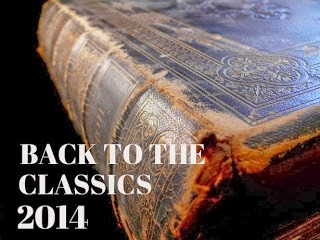Back to the Classics Checkin

Karen at Books and Chocolate is hosting the Back to the Classics Challenge this year, and it's time for a check-in post! I have finished SIX of the ELEVEN categories, and I have the movie of Slaughterhouse-Five ready to watch soon. I'm still not sure what classic thriller I'll read--I already read a lot of mysteries but I want something a bit special. Anyway, here you go: A 20th Century Classic -- If on a winter's night a traveler , by Italo Calvino A 19th Century Classic -- Mill on the Floss, by George Eliot. A Classic by a Woman Author A Classic in Translation Dead Souls , by Nikolai Gogol. A Wartime Classic August 1914 , by Aleksandr Solzhenitsyn A Classic by an Author Who Is New To You Brideshead Revisited , by Evelyn Waugh Optional Categories: An American Classic -- A Classic Mystery, Suspense or Thriller -- A Historical Fiction Classic. A Classic That's Been Adapted Into a Movie or TV Serie...








